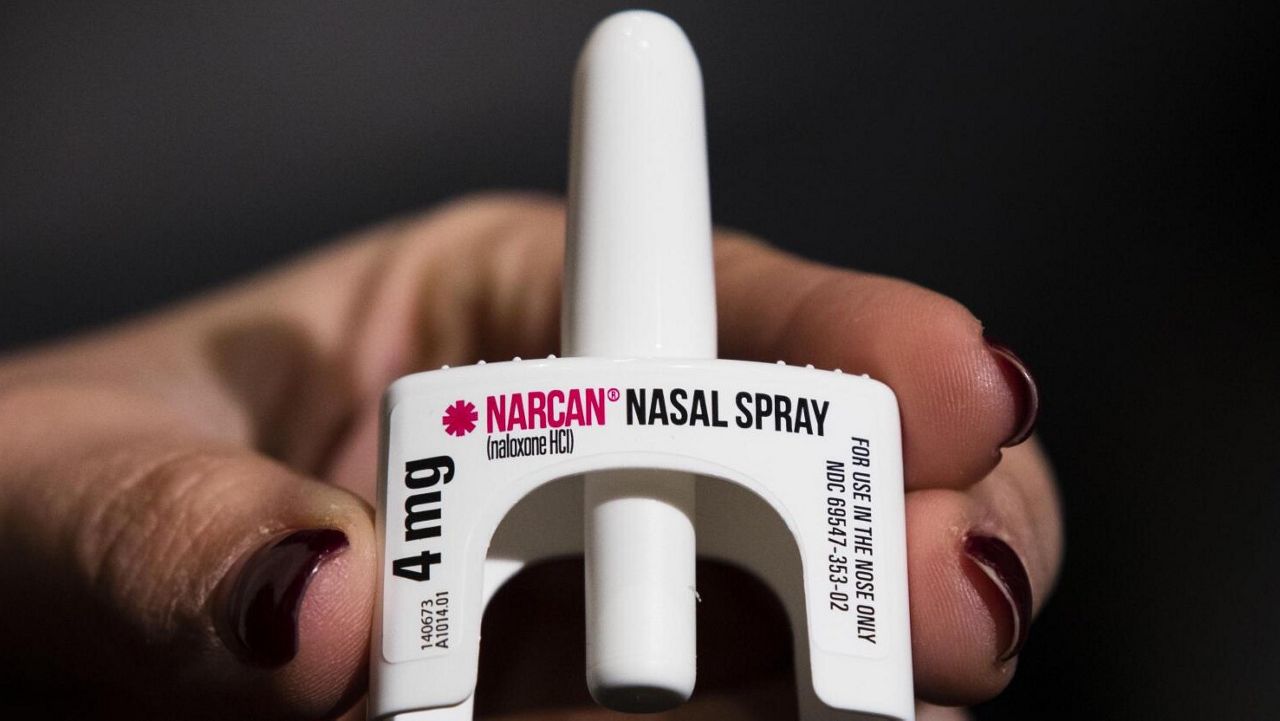HONOLULU — With the Honolulu City Council’s unanimous passage of Bill 28 on Wednesday, Honolulu is a step away from being the first city in the United States to require bars, nightclubs and other “high-risk” venues to keep doses of the opioid-reversal drug naloxone on site.
Mayor Rick Blangiardi, who has already expressed support for the measure, has until July 22 to sign off on the measure.
Earlier this year, the Federal Drug Administration approved Narcan spray for over-the-counter sale. Shortly thereafter, council member Tyler Dos Santos-Tam introduced Bill 28 to help make the drug more readily available in public venues where opioid overdose may be more likely to occur.
“The opioid crisis is real,” Dos Santos-Tam said. “Just a month ago, two people died in a mass overdose in Waikiki. That’s two families that lost a child, a sibling, or an uncle. Three more were sent to the hospital. We can’t keep letting this happen.”
“This bill takes action,” he continued. “It puts a life-saving medication in the places that need it. It will prevent more tragedies, like what happened in Waikiki, from happening again.”
Establishments that serve alcohol are considered potentially high risk because both alcohol and opioids are respiratory depressants that, when mixed, can result in impaired motor control, respiratory arrest or fatal overdose.
“Overdoses happen, especially when mixed with alcohol,” said Robbie Baldwin, owner of the Chinatown nightclub Scarlet. “Our bars and nightclubs must be prepared for every contingency. I am grateful that the City Council is taking on this important issue. This bill will protect businesses, patrons, and the public at large.”
From 2018 to 2020, opioid-overdose deaths in Hawaii increased nearly 500%, to 274 from 59, according to the state Department of Health.
“This is a significant milestone, but our work is far from over,” Blangiardi said. “The dangerous impact of fentanyl on our city cannot be overstated; we have witnessed a staggering rise in overdose deaths and the profound strain it has put on our healthcare system and our first responders has been especially taxing. We cannot stand idly by while this crisis continues to endanger our residents, and I look forward to signing this bill into law as quickly as possible.”
The Honolulu Liquor Commission has already agreed to provide free “starter doses” for all liquor licensees. A portion of the nearly $1.4 million the state will receive in opioid settlement funds will be used for replacement doses.
“We are witnessing an alarming increase in the use of fentanyl which has infiltrated into our communities,” said Honolulu Emergency Services Department director Jim Ireland. “Our neighbors and friends, who should still be here, are no longer with us. We believe this bill will save lives.”
Michael Tsai covers local and state politics for Spectrum News Hawaii. He can be reached at michael.tsai@charter.com.



